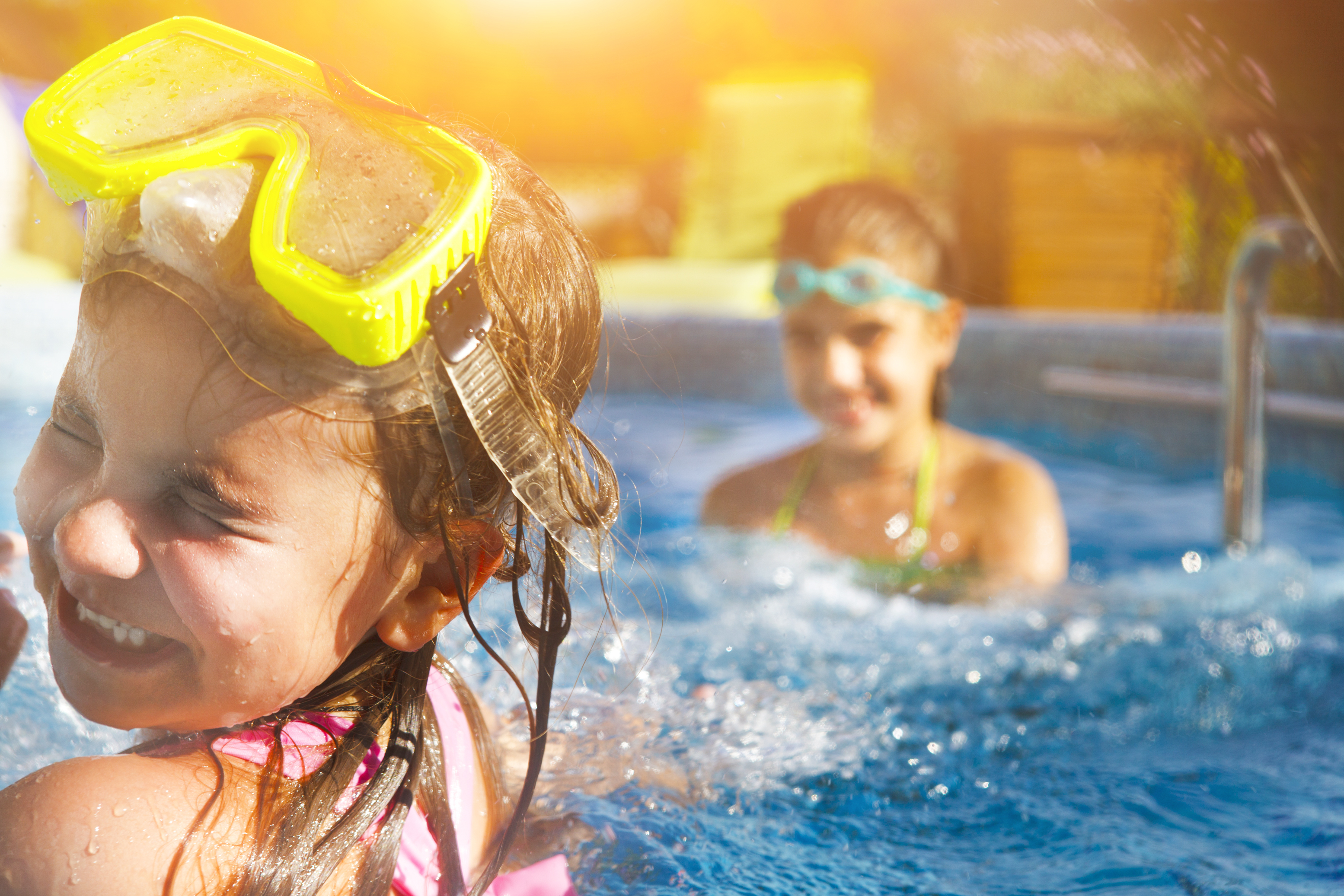What Does Chlorine Really Do to Your Body?

Imagine a summer breeze. What smells are wafting in the wind? It could be the salty smell of the ocean, a burger sizzling on the grill or, if you're poolside, the chemical stench of chlorine.
Of course, chlorine is a necessary element for summer fun; after all, you wouldn't want to take a dip in a swimming pool without it. The chemical helps keep us safe from an otherwise bacteria-filled soup of pool water and pee. (Fun fact: That swimming-pool smell you associate with chlorine isn't actually chlorine at all but a compound called trichloramine, which forms when chlorine reacts with pee and sweat.)
But is chlorine dangerous?
It's true that "too much chlorine can cause a lot of [skin] irritation," said Dr. Ana Duarte, the director of dermatology at Nicklaus Children's Hospital in Miami. But the amounts that are used in swimming pools are typically not a cause for worry, she noted. [How to Fix 9 Common Skin Problems]
An overchlorinated pool, on the other hand, can cause eye irritation, dry out the hair and skin (by stripping them of natural oils), and sometimes cause color-treated hair to turn shades of green, Duarte told Live Science. Because of this, it's important to have the right levels of chlorine in the pool, she said.
Excess chlorine in the pool can sometimes also cause small amounts of vapor to come out of the water, which "can trigger [a person's] asthma," Duarte said, though she noted that she doesn't think this effect is too common.
"Perhaps it could happen in a freshly chlorinated pool or a super-chlorinated [one]," she said. But as overeager swimmers may recall, pools are typically closed right after pool keepers chlorinate the water so that some of those vapors can diffuse, she said. (In high concentrations, chlorine gas is known to be very poisonous. In World War I, for example, chlorine gas was used as a chemical weapon. Inhaling large amounts of the gas is poisonous and could cause what's called a pulmonary edema, or fluid buildup in the lungs, according to the New York State Department of Health.)
Get the world’s most fascinating discoveries delivered straight to your inbox.
Recommendations from a dermatologist
In general, swimmers need not worry about chlorine. "If you're in a pool situation, in general, it's safe," Duarte said. "And if you do get a little bit of minor irritation, you can certainly shower off right after the pool and apply a good moisturizer to replenish some of those natural oils" that the chlorine may have stripped away.
Even if you don't rinse off, the consequences won't be dire, she said: You may end up with a bit of dry skin, or brittleness in your hair.
People who spend a lot of time in the pool, such as competitive swimmers or pool-loving kids, could have more of their natural oils stripped off their skin, in which case moisturizing can be very helpful, Duarte said. She specifically recommended using cream or ointment moisturizers rather than lotions. She also suggested using moisturizers that contain ceramides, which are natural oils in our skin.
To ward off eye irritation while swimming, "you can always wear goggles," she said. "If you don't want to wear the goggles, then maybe [you can use] some lubricating eye drops afterwards."And for sensitive hair, it can sometimes help to pretreat your hair with oil before getting into the water or to wear a swimming cap, Duarte said.
And infants older than a few months need not fear the pool. Following "the immediate period after birth … everybody's skin more or less develops the same quality and the same protective barriers," Duarte said. "So, I think the main thing with small infants is definitely avoiding peak sun hours and enjoying the pool early, and [making] sure the kids have swimming lessons and [that] they're supervised." Those things worry doctors more than the chlorine, she added.
Indeed, perhaps a more pressing concern is that globe of warmth that shines on us day after day. Don't forget to put on sunscreen and make sure you reapply, especially if you're swimming, Duarte said.
Originally published on Live Science.

Yasemin is a staff writer at Live Science, covering health, neuroscience and biology. Her work has appeared in Scientific American, Science and the San Jose Mercury News. She has a bachelor's degree in biomedical engineering from the University of Connecticut and a graduate certificate in science communication from the University of California, Santa Cruz.
 Live Science Plus
Live Science Plus





